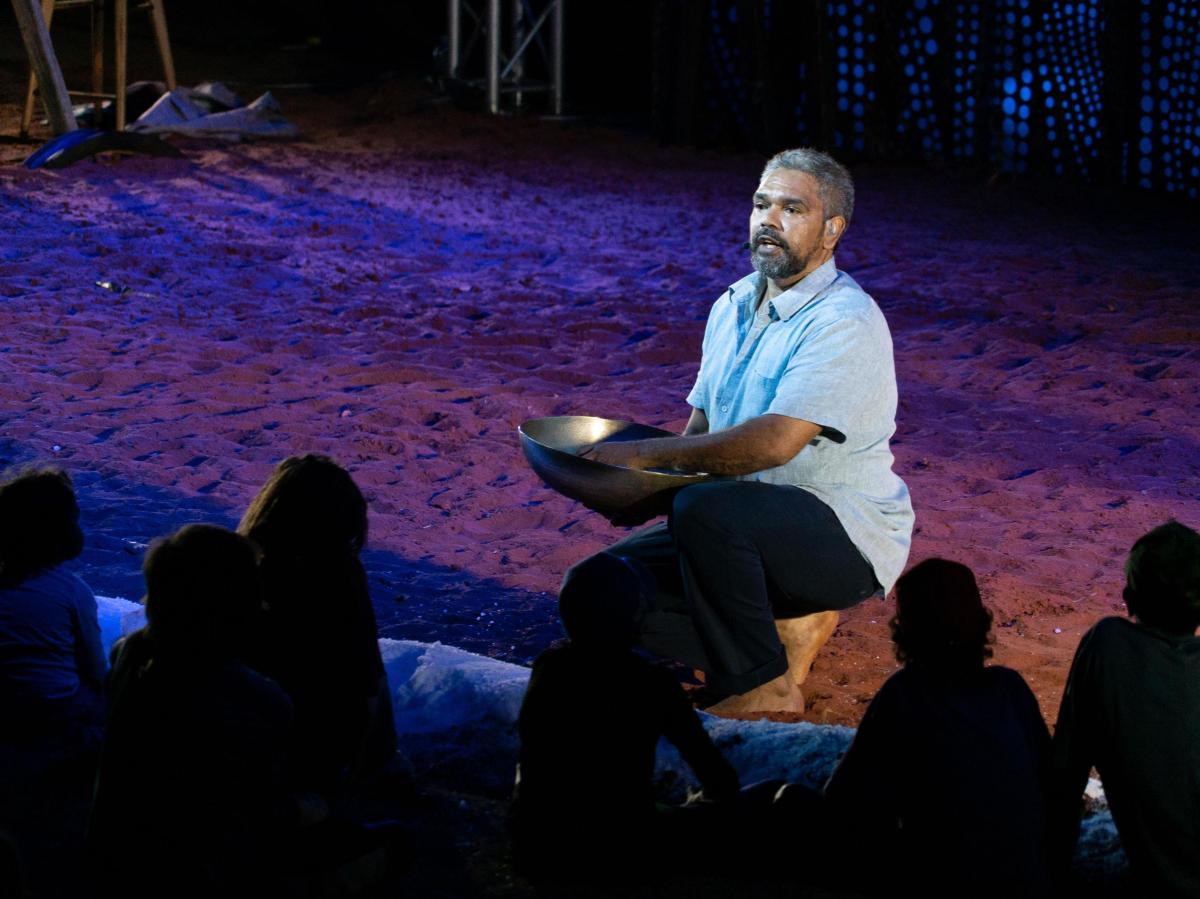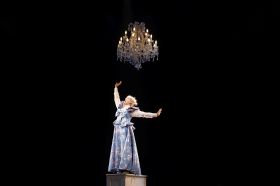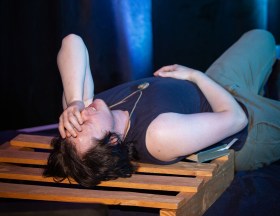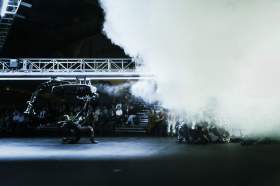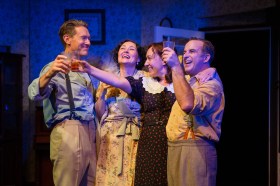Ngarluma man Patrick Churnside performs in a showing of Big hART’s Tjaabi – Flood Country at Roebourne, PAX 2018. Photo credit: Alex Sibbison, MasterWorks.
Whether presenter or producer, programmer or artist, knowing more about your audience – who is coming to your shows and why; who isn’t coming to your shows and how you can reach them – is of critical importance.
Opinions differ on how to best target audiences and increase your organisation’s relevance to your local community, which is why this year’s PAC Australia Conference and Performing Arts Exchange is gathering a range of experts to discuss and debate the topic.
‘We’ve got three big, different points of view on audience research coming into the conference,’ explained Rick Heath, Executive Director, PAC Australia.
Representatives from UK company the Audience Agency, Culture Counts Australia and the USA’s WolfBrown will present the latest expert ideas about tracking and engaging audiences at this year’s conference, hosted by The Events Centre, Caloundra, on the Sunshine Coast.
Each agency’s model has a different approach, meaning conference-goers will be encouraged to draw their own conclusions about the information being presented.
‘It will be really interesting to see what happens when we get these three different viewpoints about how you do audience research and development in the room at the same time … And I think it’s a really important thing to plant that in the industry, to say: there isn’t one way. Here are a bunch of ways. We’re in this state of evolution where we’re trying to measure impact and here are three different ways of doing it – which one’s going to work for you?’ said Heath.
This non-prescriptive approach extends to the conference program as a whole. Instead of passively listening to a series of keynotes, delegates will be encouraged to participate, follow speakers into masterclasses, and generally curate their own unique conference itinerary.
The opportunity to visit a regional arts centre on the Sunshine Coast, to break with routine and explore a new place and space, is also central to the appeal of PAC Australia’s annual conference.
Gary Mears, General Manager, The Events Centre Caloundra, said his venue was proud to be hosting the event this year.
‘In 2018, The Events Centre Caloundra presented a very determined pitch to attract the PAC Conference and Performing Arts Exchange to the Sunshine Coast,’ Mears explained.
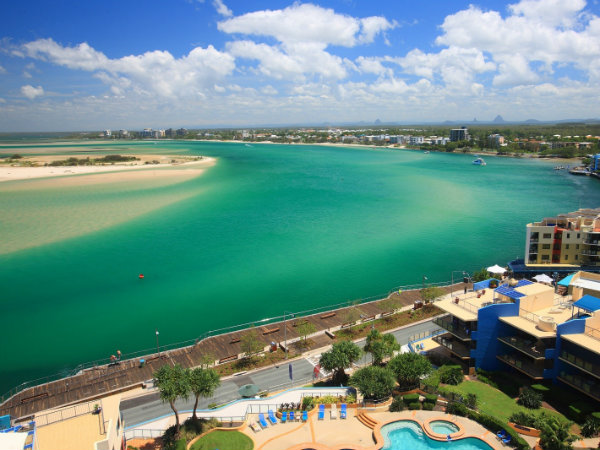
Host destination – Sunshine Coast. Image Courtesy Visit Sunshine Coast
‘The majority of Australia’s performing arts centres are located in regional centres which present a diverse range of challenges and opportunities for venue managers and touring companies. One of the greatest benefits from attending the annual PAC Conference is building strong networks and learning from others. Exposure to other regional venues, and the unique communities that they serve, provides delegates with benchmarking experiences along with innovation and inspirational ideas for what is possible in their venue or region,’ Mears said.
Heath agreed, adding that there is real value in disrupting a regular routine in order to immerse yourself in an event like the PAC Conference and PAX.
‘The opportunity to step away from your email for a week and actually take an opportunity to reflect is really important. After last year’s conference, where we took people out to Karratha and gave them a very different experience, and asked them to think about how they’re contributing to the sense of space that the conference generated, I wanted to do something different this year,’ Heath explained.
‘I wanted to turn around and go okay, let’s give people some really practical information and tools – and so all of the keynotes have follow-up sessions providing practical tools, and then there’s a masterclass session with each of the speakers as well. It’s really about drilling down and going, “Okay, great, you’re telling me the theory but actually, how am I going to apply that?” The idea is that when you get back to your desk on Monday, after the conference, you’ll know what you’re going to use this information for, as opposed to just going “Well, that’s nice information to have”.
‘I think that will shift the way that we have the conversation; that it really is a dialogue, not a “we are telling you this” experience,’ Heath said.
Learn more about this year’s Conference and Performing Arts Exchange
International guests at this year’s PAC Australia conference include Bryan Joseph Lee, Associate Director of Special Artistic Projects at New York City’s The Public Theater, an artist-driven, inclusive theatre company.
‘He’s one of the icons of social change in the arts in the world, as far as I’m concerned,’ said Heath. ‘But Bryan totally gets the marketing side of things as well. He gets that there’s a balance between selling tickets and working on inclusion or community engagement as well – and he’ll have some great insights into how to achieve both.’

2018 Conference delegates. Image courtesy PAC Australia. Photographer Alex Sibbison
The ongoing evolution of the sector, the changing nature of performing arts centres and their relationships with audiences will also be discussed by guest speakers from the UK and USA as well as Australia.
‘Deborah Cullinan is the CEO of the Yerba Buena Center for the Arts in San Francisco and is very much focused on the idea of her centre driving cultural citizenship and civic coalitions – hearing the voices of the people from that centre and providing a service to them.
‘Whereas Alison Clark is from the Arts Council England and is driving a whole other conversation around arts centres. She argues really well that an arts centre, without an artistic director in the ways that you would have at a theatre company for example, has a much more open palette, if you like. They’re at the centre of a whole bunch of different conversations rather than driving one singular conversation, as you would if you were the artistic director of a theatre company.’
Cullinan and Clark will be joined in conversation – ‘a convergence rather than a keynote,’ Heath said – by Michelle Adams, a Yindjibarndi woman from Roebourne WA, who works as Cultural Advisor to Big hART.
‘Michelle is based in Roebourne at the cultural centre there; she’s an Indigenous person in a vastly remote place, at a centre that’s struggling for resources. I’ll be interested to see the contrast and the conversation with Deborah, who works at this iconic place in San Francisco. And then you’ve got this intermediary in terms of Alison from Arts Council England asking about how do we value arts centres in terms of their connection with community and art?’
The conference also features Australian arts leader Wesley Enoch as thinker-in-residence. ‘Wesley is a frigging awesome facilitator and he knows how to bring people together, which is really important for us,’ Heath enthused.
A NATIONAL SNAPSHOT
While the conference proper runs from Wednesday 28 August to Thursday 29 August, it is preceded by the Performing Arts Exchange (PAX), a national arts market providing an invigorating snapshot of the state of the sector. Here, delegates won’t just see shows pitched for touring – they’ll gain deep insights into the collective passions and concerns of the performing arts sector at a rare and national level.
‘In financial terms, the balance sheet is a snapshot of an organisation at one point in time. PAX is kind of like a balance sheet for the industry – here is the spectrum of work on offer and here is everything that people are dealing with. I think that’s got so much more value in that context rather than only pitching shows,’ Heath said.
‘One of the statements that we make is that making strong connections is a whole lot easier when we understand how things work and understand each other’s contexts. And that’s something the PAX really provides.’
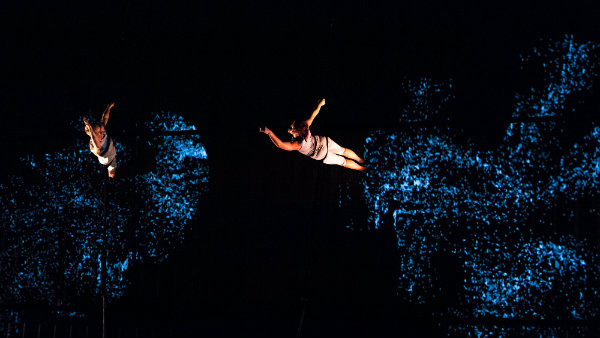
Stalker Theatre’s Mountain at Horizon Festival. Photo credit: Arron Walker.
In addition to an alluring range of presentations from companies and artists as diverse as NOPRA, Back to Back Theatre, pvi collective, Briefs Factory, Performing Lines, Gabrielle Nankivell and Thomas E.S. Kelly, delegates at PAX and the conference have the added opportunity of experiencing the best of Horizon Festival, which has partnered with PAC Australia this year.
Horizon is the Sunshine Coast’s 10-day celebration of visual art, music, words and ideas, art, tech, film and more, with a program stretching from the beaches of Maroochydore to the hinterland. This year’s festival features work by well-known artists and companies including Uncle Jack Charles, Branch Nebula, Stalker Theatre, comedians Dave Hughes and Tommy Little, and an array of local and visiting musical acts.
‘Part of the idea of being aligned with Horizon Festival – or any festival for that matter – is it just means there’s a whole lot of other options that presenters have to see work, and also that the local artists that are performing in that festival will have the opportunity to connect with other national artists and presenters,’ Heath said.
‘It gives artists and presenters the chance to wring every last opportunity out of the week. And whether that means they’re at the Performing Arts Exchange or the Conference the whole time, or they’re ducking out and getting stuck into something at Horizon, either of those things are really good.’
PAC Australia’s 2019 National Performing Arts Exchange and Conference runs from 26-29 August at The Events Centre, Sunshine Coast, QLD. Visit www.cvent.com/d/q6qrsh for booking information and conference details.

